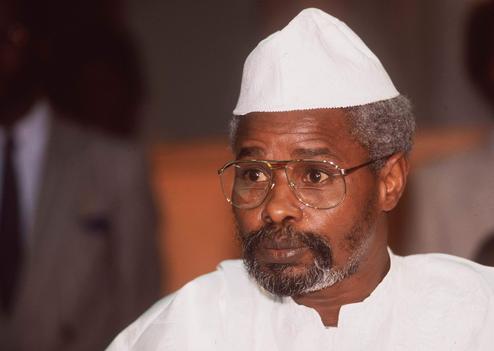Africa’s Pinochet’ removed from court

 Chad’s former President Hissene Habre has been removed from the courtroom at his trial for crimes against humanity.
Chad’s former President Hissene Habre has been removed from the courtroom at his trial for crimes against humanity.
He shouted that the process was “a farce” as he was waiting for proceedings to begin.
The trial in Senegal’s capital, Dakar, marks the first time one African country has prosecuted the former leader of another. Mr Habre denies being responsible for hundreds of deaths during his rule from 1982 to 1990.
The trial follows a 25-year campaign to bring him to justice. Mr Habre does not recognise the court and was brought there by prison guards. Waiting for the trial to open, the former Chadian leader shouted: “Down with imperialists.
[The trial] is a farce by rotten Senegalese politicians. African traitors. Valet of America”. Mr Habre was taken out of the courtroom and the trial began without him. He then refused to come in after the recess that followed the opening statements, and now proceedings have been suspended while the court waits for Mr Habre to be forced to return, the BBC’s Thomas Fessy reports from Dakar.
This is the first time an African head of state will be tried in another African country – for torture, war crimes and crimes against humanity. Some campaigners think it will show that Africa can hold its own leaders to account rather than rely on the International Criminal Court (ICC).
The African Union has become increasingly hostile to the ICC, believing that it has unfairly targeted Africans. Hissene Habre could not be tried before the ICC as his alleged crimes were committed before it was established in 2002, but the special court established jointly by Senegal and the African Union in Dakar could set a template for future trials.
Hissene Habre could not be tried before the ICC as his alleged crimes were committed before it was established in 2002, but the special court established jointly by Senegal and the African Union in Dakar could set a template for future trials.
Profile: Hissene Habre
At the end of his opening statement, prosecutor Mbacke Fall said that Mr Habre’s “silence will not be seen as a defence strategy” and will not affect a fair trial. Also addressing the court, victims’ lawyer Jacqueline Moudeina said that the trial “is in the name of humanity, a humanity which Hissene Habre never allowed his victims”. Many of his alleged victims have been calling for the trial since his overthrow and exile in Senegal in 1990.
A Chadian truth commission found in 1992 that the Habre regime was responsible for 40,000 deaths and disappearances, leading many to dub him Africa’s Pinochet, after the Chilean military ruler Augusto Pinochet.
In 2005 a court in Belgium issued a warrant for his arrest, claiming universal jurisdiction but, after Senegal referred the issue to the African Union, the AU asked Senegal to try Mr Habre “on behalf of Africa”.
Progress has been slow, as Senegal’s previous President Abdoulaye Wade appeared to be reluctant to put him on trial. He first said the country lacked funding and then, apparently fed up with the process, suggested that Mr Habre should be sent back to Chad where he had already been sentenced to death.
President Macky Sall, elected in 2012, agreed to a trial in a special tribunal set up within the Senegalese court system, and in 2013 the African Extraordinary Chambers was established with AU backing. The court was set up to deal with crimes committed in Chad between 1982 and 1990. Mr Habre was indicted in 2013 but he refused to cooperate with the special court.
Source: BBC